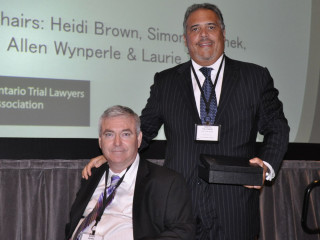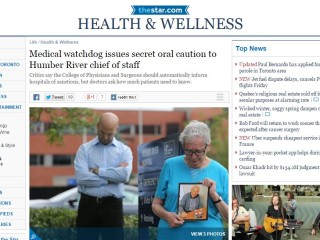Full Decision
Defendant physician brought a motion post-trial to withdraw an admission made in response to the Plaintiff’s Request to Admit when it became apparent at trial that it was inconsistent with her expert’s opinion.
At issue in this action was the standard of care required for the treatment of a perianal abscess. The plaintiff was seen by the defendant ER doctor on June 29, 2012 and discharged home. The plaintiff alleged that her failure to drain the abscess was below standard.
Prior to trial the plaintiff served a Request to Admit asking the defendant to admit that “on June 29, 2012 Penny-Lee Champoux had a perianal abscess.” The defendant doctor refused to admit that fact, maintaining instead that “(o)n June 29th, 2012, Penny-Lee Champoux presented with a buttock abscess/swollen nodule in the general perianal area”.
At trial, there was some confusion as amongst the witnesses and experts testifying as to the nature of the abscess in question. Various terms, from buttocks abscess to perianal abscess to ischiorectal abscess to anorectal abscess were used to refer to the lesion that the plaintiff presented with on June 29, 2012. The expert evidence, though, was that there is a distinction to be made between a buttock abscess and a perianal abscess.
The defence expert opined at trial that he felt that the defendant doctor had met the standard of care for the treatment of a buttocks abscess, as he had understood from the records that that was the nature of the condition that the plaintiff had presented with. When asked if the standard of care had been met from treatment of an abscess “in the perianal area,” however, he acknowledged that the standard had not been met.
The defendant sought to withdraw the admission, arguing that the plaintiff “sought to take advantage of an interpretation of the admission that the defence had never intended.” The plaintiff submitted that the admission was what it was, and that arguments as to the correct interpretation ought properly to be left for closing arguments.
In considering the defendant’s motion to formally withdraw the admission, the trial judge reviewed the test for granting a withdrawal set out by the Ontario Court of Appeal in Liu v. The Personal Insurance Company at paragraph 13:
- is the admission one of purely fact, law, or mixed fact [and] law? A court would be more likely to exercise its discretion if the admission is a pure question of law that is incorrect than an admission which is only factual or of mixed fact and law;
- does the proposed amendment raise a triable issue in respect to the truth of the admission?;
- is there a reasonable explanation for the withdrawal, such as inadvertence or wrong instructions?; and,
- has the party wishing to withdraw the admission established that the withdrawal will not result in any prejudice that cannot be compensated for in costs?
After finding that the admission was one of fact, and raised no triable issue with respect to its truth (as opposed to its interpretation), the motion was dismissed and left for trial.















